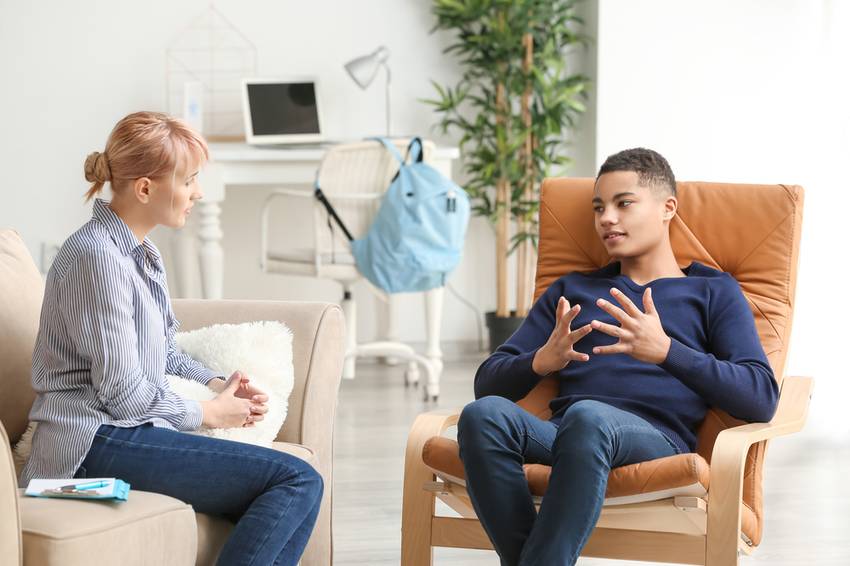Finding a good therapist that fits your need is not an easy task. In this article, we will discuss 10 signs of a good therapist which will help you make the right decision.
There are many different types of therapies. Not all therapies are created to be the same, and neither are the individual therapists. There are exceptional professional therapists; however, some aren’t quite at par. Apart from having objective skills and talents, a good therapist will have a natural connection with their clients. There are numerous advantages of therapy, and choosing the right therapist can make you experience these benefits. This is why it’s crucial to conduct your own research and talk to many therapists before settling on the best one for you.

What are the qualities of a great therapist, other than their ability to make the client feel better? Since most psychotherapy methods are successful, any skilled and licensed therapist can bring about a slight improvement. However, the best psychotherapist can make a significant difference in the lives of clients. They can help each patient learn new emotional and cognitive thinking skills, help them recover from anxiety, guide them towards healthier relationships, and transform patients to become better versions of them.
The first step is to think about which kind of therapy you require? Understanding the answer to this question will allow you to identify your ideal match. Once you do, keep these 10 signs of a good therapist in mind as you look for your next online counsellor.
What are the Signs of a Good Therapist?
1. They are good listeners
They actually take note of what you say. Listening is the most simple part of the job of a therapist, isn’t it? Not quite. Listening is a multi-faceted skill that requires much more than simply sitting and waiting when another person speaks.
A good therapist shows that they’re not just listening to you but also understanding them. If you feel like your therapist’s attention is diverted when you talk — whether it’s the time on their clock, their list of groceries, or anything else, it’s a sign you might need to meet with someone else.
What does listening look like? They should show nonverbal signs of listening, like eye contact, facial expressions, and posture, as well as verbal ones.
For example, you might hear your therapist summarize or reflect on what you’ve said or ask for clarification.

2. They make you feel validated
Your counsellor should validate your thoughts, emotions, actions, and experiences. It doesn’t mean they’re in agreement with all that you do or say. There’s actually an important distinction between approval and validation.
Validation is about acknowledgment and acceptance. Therapists who make you feel accepted and valued, recognize what you share with them as being the truth about your perception. Approval, along with their opposites, such as disapproval is a form of value judgment. A good therapist will try to stay clear of making value judgments regarding your thoughts, words, or so.
3. They’re looking out for what’s the best for you
It is another sign of a good therapist. They can provide advice and resources but also respects your authority. Don’t feel like your therapist is attempting to force you to do something that you would rather not do.
This can include decisions you make regarding your treatment, such as contacting an alternative professional or suspending therapy for a period of time. Professional therapists will be able to accept your choice, even if it’s not in their best interest personally.
4. They’re an effective communicator
The most effective communicators are those who listen more than they talk. However, while listening is an essential element of a therapist’s job, it shouldn’t be with the cost of speaking skills.
A therapist can also be an educator, so they must break down concepts and describe symptoms in a manner that is easy to comprehend. While most therapists have gone through several years of training and practice, their language must be simple, as opposed to scientific.
Furthermore, a great counselor will ask questions to make sure you’ve got the message and will take the time to explain their reasoning if they don’t.
5. They will check in with you regularly
The process of establishing a therapist-client relationship could be a new concept to you. It might be difficult talking about certain issues with your therapist, for instance, being unhappy with the way your therapy is going.
As a certified professional, your therapist ought to be more comfortable initiating these regular check-ins. They should make an effort to ask you regularly what you think about how the treatment is going and adjust accordingly.
Sometimes, though, you simply might not be a good fit for each other. The best therapists will be able to encourage you to voice your concerns whenever you’re not getting the results you want. They may even offer you an alternative to a more suitable colleague.
6. They take the time to educate themselves
Your therapist may know a lot about specific aspects of psychology, it does not mean they are experts in all areas. Based on the length of time they’ve been in practice, and how specialized they are, the information you offer to the table could be completely new to them. It’s normal.
Your therapist should be able to admit that they aren’t sure about the details of something. However, they should attempt to find out more by digging into the literature of science, attending conferences and seminars, and chatting with colleagues. A committed therapist is always learning new things.
7. You see them as an ally
Your therapist isn’t your guru, friend, or boss. Although a therapist can assist you in achieving the direction you want to go, their job isn’t to instruct you on what to do and how to accomplish it.
A good therapist can be an all-around partner. From the first moment you’ve met together, they’ll create a relationship with you built on trust. This is referred to as a therapeutic alliance.

8. They aren’t judgmental
Therapy is not an opportunity to express opinions or judgments. It is supposed to be a secure place where people can freely discuss their issues. A good therapist will appreciate the individuality of a patient and their opinions. They’ll also be impartial as they guide a patient to make sound choices.
The purpose of counseling isn’t to seek advice; it’s about providing the opportunity to heal. The therapeutic process that transforms you doesn’t include judgment. Instead, it is comprised of awareness, understanding, empathy, acceptance, and support. A skilled therapist will be able to accept and listen to, as well as seek to comprehend, respond appropriately to, and acknowledge the humanity of every client regardless of how much the therapy “likes” or is a fan of the person.
9. They employ evidence-based therapies
The evidence is constantly changing, which means that experts may not believe certain methods or techniques to be efficient or suitable. A good therapist is up-to-date with the latest trends in their field and adapts their therapy to the latest developments.
10. They develop rapport
There needs to be some relationship between the therapist and the client, known as rapport. A good therapist must be competent in making clients feel secure enough to allow them to speak to them. A therapist should be capable of doing this effortlessly.
The person should also be capable of trusting their counselor. If they feel that they must lie to their counsellor or conceal crucial information, then the therapy won’t be effective. A good therapist will be adept at working with the patient and assisting them.
These were 10 signs of a good therapist you need to know in order to find the right one for you. Check out Dr. Neha Mehta, a leading clinical psychologist.
Also, Read
How To Make People Respect You – 10 Important Tips
How To Increase Your Emotional Intelligence? 13 Ways To Increase EQ
How To Avoid Pregnancy After Unprotected Sex?
10 Signs You Need a Psychologist – When to see a psychologist?












